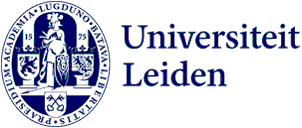
LERU conference in Leiden: ‘Universities steer society through storms’
The League of European Research Universities (LERU) was launched in Leiden 20 years ago. This anniversary will be celebrated with a major conference (19 – 21 May) on an urgent theme: How does science contribute to sustainable and resilient societies? We put this question to Kurt Deketelaere, Secretary-General of LERU, and Rector Hester Bijl.

What can society expect of LERU and this conference?
Deketelaere: ‘LERU will continue to be the primary champion of pioneering research and education. It is universities themselves that are driving the development of a sustainable and resilient society. Twelve LERU cities are among the hundred cities – appointed by the European Commission – that have to be “sustainable & smart” by 2030. The LERU universities will be the driving force for this in their cities. We want to share our experience and expertise on this theme so that by 2050 all European cities will be sustainable and smart.’
The League of European Research Universities (LERU), is a collaboration of 23 leading research universities, including Oxford, Cambridge, Leiden, Leuven and Heidelberg. The conference in Leiden is by invitation.
Bijl: ‘The world is facing highly complex issues, such as the climate crisis and accessible care for everyone. That means it’s essential that different scientific disciplines work together, which is precisely what the LERU universities do. We work here in Leiden and in Europe on developing new vaccines and innovative treatment methods, and we research how our society can become more sustainable and more resilient. Our worldwide networks within LERU make it possible for us to contribute on a global scale to the major issues of the present day.’

What will be the highlights of this conference?
Bijl: ‘LERU was founded in Leiden in 2002, and I think it’s fantastic that we are celebrating its 20th anniversary here. One of the speakers will be Mariya Gabriel, EU Commissioner for Research, Innovation and Education. Her presence shows that LERU really is in close contact with decision-makers in Europe. After countless online meetings during the coronavirus pandemic, we can finally meet up again in person. That really is conducive to a creative and inspiring exchange of ideas.’
Deketelaere: ‘During this celebration we’ll look back at what we have achieved, and we’ll look forward to the challenges of the coming ten years. Universities are operating in an increasingly complex society. That brings new opportunities but also new challenges, and we want to address all of these issues. Luckily, universities are agile organisations that can guide society and steer it through all kinds of storms. The pandemic demonstrated that abundantly.’
‘We can’t just focus blindly on our own region, but need to give students a global perspective.’
What are the challenges facing European universities?
Deketelaere: ‘On the one hand, LERU promotes the interests of research, innovation and education at all EU institutions; on the other, it develops and promotes all manner of best policies and best practices relating to themes that benefit these universities, their staff and their students. One of these themes is the conditions for good research, which include academic freedom, research funding, data protection and open science. We also promote diversity, sustainability and a strong health policy so that the researchers themselves are able to thrive.’
Bijl: ‘LERU has already proven its worth as a European partnership. We have to continue to work hard to maintain that position and to be visible within Europe and further afield. It is also important that we don’t just focus blindly on our own region, but give students a global perspective. The war in Ukraine shows that peace is not a given and international collaboration is essential.’
